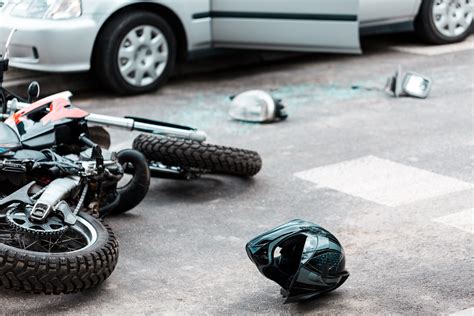
Being involved in a motorcycle accident can be a traumatic experience. In addition to dealing with the physical and emotional impact of the accident, there are also important steps you need to take to protect yourself legally and financially. Here are some key steps to follow if you’ve been injured in a motorcycle accident:
1. Seek Medical Attention
Your health and well-being should be your top priority after a motorcycle accident. Even if you think your injuries are minor, it’s important to seek medical attention right away. Some injuries may not be immediately apparent, and a medical professional can assess your condition and provide appropriate treatment. Additionally, seeking medical attention will create a record of your injuries, which can be important for any legal or insurance claims you may need to make.
2. Contact the Authorities
After a motorcycle accident, it’s important to contact the authorities, such as the police or highway patrol. They will document the accident and create an official report, which can be valuable evidence if you need to file a claim or pursue legal action. Be sure to provide the authorities with accurate and detailed information about the accident, including the location, date, time, and any other relevant details.
3. Gather Evidence
Collect as much evidence as possible at the scene of the accident. Take photos of the accident scene, including any damage to your motorcycle and any other vehicles involved. If there were any witnesses to the accident, try to obtain their contact information. This evidence can be crucial in proving fault and liability in any legal proceedings that may follow.
4. Notify Your Insurance Company
It’s important to notify your insurance company as soon as possible after a motorcycle accident. Provide them with accurate and detailed information about the accident, and be sure to report any injuries you sustained. Your insurance company will guide you through the claims process and help you understand your coverage and any potential compensation you may be entitled to.
5. Consult with an Attorney
Even if you don’t think you’ll need to pursue legal action, it’s a good idea to consult with a personal injury attorney who specializes in motorcycle accidents. They can provide valuable advice and guidance, and help you understand your rights and options. If you do decide to pursue a legal claim, an attorney can handle the complex legal process on your behalf and work to secure the compensation you deserve.
6. Keep Detailed Records
Throughout the entire process, it’s important to keep detailed records of all your medical expenses, lost wages, and any other costs related to the accident. This includes bills, receipts, and any documentation from healthcare providers. These records will be important when calculating the full extent of your damages and seeking compensation.
7. Be Mindful of Time Limits
It’s important to be aware of the time limits for filing a legal claim after a motorcycle accident. These time limits, known as statutes of limitations, vary by state and can range from one to six years. It’s crucial to consult with an attorney as soon as possible to ensure you don’t miss any important deadlines.
Frequently Asked Questions:
- Q: How long do I have to file a legal claim after a motorcycle accident?
- A: The time limits for filing a legal claim, known as statutes of limitations, vary by state. It’s important to consult with an attorney to understand the specific time limit that applies to your case.
- Q: What if I don’t have insurance?
- A: Even if you don’t have insurance, it’s still important to seek medical attention and consult with an attorney. They can help you understand your options for seeking compensation and navigating the legal process.
- Q: Can I still file a claim if I was partially at fault for the accident?
- A: Yes, you may still be able to file a claim even if you were partially at fault for the accident. Consult with an attorney to understand how the concept of comparative negligence may impact your case.
- Q: How long does the legal process typically take?
- A: The length of the legal process can vary depending on the complexity of your case and whether it goes to trial. It’s best to consult with an attorney for a more accurate estimate based on the specific details of your situation.
- Q: What if the other party involved in the accident doesn’t have insurance?
- A: If the other party involved in the accident doesn’t have insurance, it can complicate the claims process. Consult with an attorney to understand your options for seeking compensation in this situation.